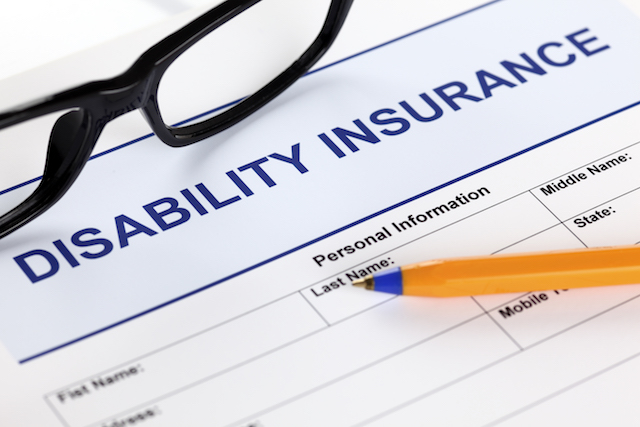Using Quick Disability Determination (QDD) to Get a Faster Benefits Claim Decision
Under normal circumstances, disability benefits claims can take anywhere from 30 days to two years to be processed by the Social Security Administration, with most claims taking approximately three to four months. However, if your disability is extremely serious and you need a decision to be made as soon as possible, you may be eligible for “QDD” or Quick Disability Determination. Our Philadelphia social security lawyers explain who qualifies and how the program works.
What is Quick Disability Determination (QDD)?
Quick Disability Determination is exactly what it sounds like: an expedited review process for qualifying claims. The SSA writes that the objective of the QDD program is to “identify claimants with the most severe disabilities and… expedite our decisions on those cases while maintaining accuracy.” The SSA statement goes on to describe the QDD initiative as one of its “greatest successes in recent years.”
Successful claims which are processed with the QDD method may be approved in as little as just a few days, instead of months or even years. Unfortunately, applicants themselves cannot apply to the QDD program, as the SSA makes QDD determinations internally. The SSA uses special software to identify claims which are suitable for QDD. However, the examiner handling your claim should be able to tell you whether he or she intends to refer your application to QDD, and the reason for making their decision either way.

Other Fast-Track Disability Benefits Programs
Even if your claim is not referred to the Social Security Administration’s QDD unit, you may be eligible for expedited claims processing through alternative fast-track programs, such as the Compassionate Allowance (CAL) program or the Terminal Illness (TERI) program.
Compassionate Allowance is meant for disabilities which are so serious that they clearly qualify under the normal eligibility requirements, such as advanced cancer or early-onset Alzheimer’s Disease. Additionally, the Compassionate Allowance list also includes many uncommon conditions which are not included in the Listing of Impairments simply because they are so rare. The Social Security Administration consults with the National Institutes of Health (NIH) to periodically expand its ever-growing list of CAL conditions.
Compassionate Allowance (CAL)
As of March 2015, the list of CAL conditions includes disabilities such as:
- Adult Non-Hodgkin Lymphoma
- Aplastic Anemia
- Chondrosarcoma
- CJD (Creutzfeldt-Jakob Disease)
- Fryns Syndrome
- Gaucher Disease (GD) – Type 2
- Heart Transplant Graft Failure
- Hydranencephaly
- I Cell Disease
- Juvenile Onset Huntington Disease
- Kufs Disease – Type A, Type B
- Malignant Germ Cell Tumors
- Malignant Multiple Sclerosis
- Mitral Valve Atresia
- Mucosal Malignant Melanoma
- Ohtahara Syndrome
- Ossificans Progressiva
- Ovarian Cancer
- Pulmonary Atresia
- Rett Syndrome
- Single Ventricle
- Sinonasal Cancer
- Spinal Muscular Atrophy – Type 0, Type 1
- Tay Sachs Disease
- Zellweger Syndrome
Claimants do not have to apply specifically for CAL consideration, as the SSA will make the decision internally.
Terminal Illness (TERI)
Claimants may be selected for the Terminal Illness program due to a few different factors, such as a physician’s report that the disease is terminal, or because they are receiving hospice care.
There are many overlapping conditions which appear on both the TERI list and the CAL list. TERI conditions may include, but are not limited to:
- Adrenal Cancer
- ALS (Amyotrophic Lateral Sclerosis)
- Bladder Cancer
- Bone Cancer
- Brain Cancer
- Breast Cancer
- Cancer of the Large Intestine
- Cancer of the Small Intestine
- Cancer of the Ureters
- Carcinoma
- Chronic Heart Failure
- Chronic Pulmonary Failure
- Coma (30 days or more)
- Esophageal Cancer
- Gallbladder Cancer
- HIV/AIDS
- Inoperable Cancer
- Jaw Cancer
- Kidney Cancer
- Leukemia
- Liver Cancer
- Lou Gehrig’s Disease
- Lung Cancer
- Lymphoma
- Mesothelioma (Pleural Cancer)
- Metastatic Cancers
- Multiple Myeloma
- Nervous System Cancers
- Pacemaker Dependency
- Pancreatic Cancer
- Prostate Cancer
- Recurrent Cancers
- Salivary Gland Cancer
- Skeletal Muscle Sarcoma
- Skin Cancer
- Soft Tissue Sarcoma
- Soft Tissue Tumors
- Spinal Cord Cancer
- Stage IV Cancer
- Stomach Cancer
- Testicular Cancer
- Thyroid Cancer
- Vaginal Cancer
You may also qualify for expedited TERI consideration if you are currently waiting for a:
- Bone Marrow Transplant
- Heart Transplant
- Liver Transplant
- Lung Transplant
Newborns who were born with a fatal congenital defect or fatal genetic defect can also qualify.
Presumptive Disability
If you are applying specifically for SSI or Supplemental Security Income, you may be able to qualify for a program called Presumptive Disability. While Presumptive Disability is not technically an expedited program, and will not result in faster claims processing, what it will do is provide the claimant with benefits while he or she is waiting for the SSA’s actual decision to be made. Claimants who are applying for SSDI or Social Security Disability Insurance are ineligible for presumptive disabilities assistance.
Pennsylvania Disability Lawyers Offering Free Consultations
If you’re trying to file for disability benefits in Pennsylvania or New Jersey, or if you’ve already been denied by the SSA and want to appeal the decision, the Montgomery County social security lawyers of Young, Marr, Mallis & Associates can help. To set up a free and confidential legal consultation, call our law offices at (609) 755-3115 in New Jersey or (215) 701-6519 in Pennsylvania today.






























